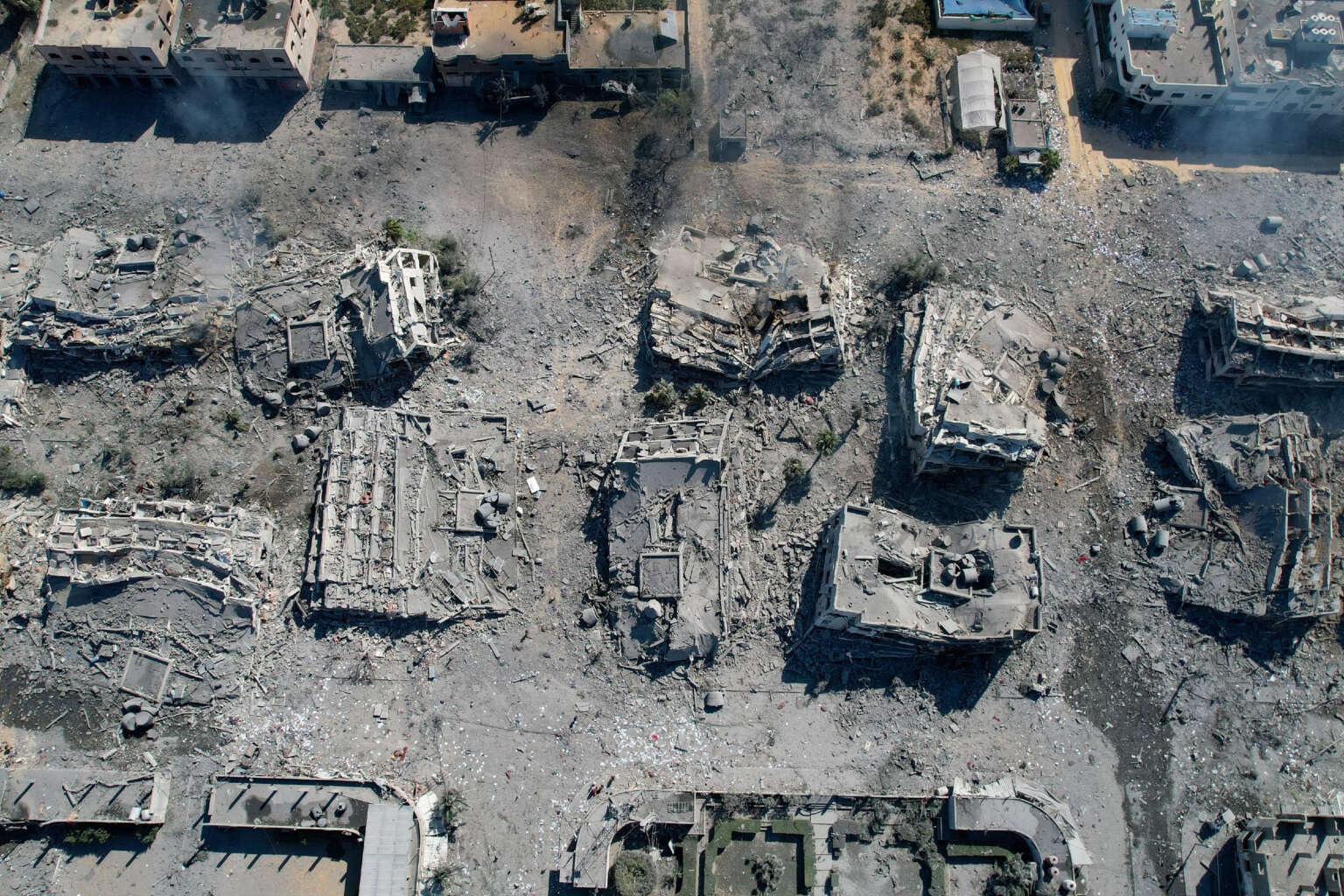
Gaza City, October 24 (RHC)-- The Gaza Strip has sustained widespread destruction as the Israeli military has bombarded the besieged enclave of 2.3 million people for more than two weeks. Even its south, which Israel had declared a safe zone, has not been spared.
Satellite imagery and photographs show entire neighbourhoods have been levelled with many hospitals, schools, places of worship and homes damaged or destroyed by Israeli land, sea and air attacks.
In the following infographic series, Al Jazeera maps out Gaza’s damaged communities and neighbourhoods across the strip’s five governorates: North Gaza, Gaza City, Deir el-Balah, Khan Younis and Rafah.
* Gaza’s densely populated neighborhoods
Bordered by Israel and Egypt on the Mediterranean coast, the Gaza Strip is 365sq km (141sq miles). At only 41 km (25 miles) long, it can take less than an hour to drive from Beit Hanoon in the north to Rafah in the south.
The Palestinian enclave has a population of 2.3 million people, including 1.7 million refugees who were ethnically cleansed from areas that now form part of Israel. Most refugees live in or near Gaza’s eight refugee camps.
Since 2007 when Hamas came to power, Israel has maintained strict control over Gaza’s airspace and territorial waters and restricted the movement of goods and people in and out of Gaza.
* North Gaza’s neighborhoods
North Gaza extends for 10km (6 miles) and shares the only crossing into Israel through Beit Hanoon, also known as the Erez crossing. North Gaza is home to the Jabalia refugee camp, the largest in the strip.
The 61sq-km (24sq-mile) area is home to 440,000 people and includes the following communities and neighbourhoods: Beit Lahiya, Beit Hanoon, Jabalia refugee camp, Madinat al-Awda and Jabalia al-Balad.
* Jabalia refugee camp
The Israeli military has repeatedly hit the Jabalia camp, including on October 9, 12, 19 and 22 killing more than 150 people. The camp houses three United Nations-run schools, which have been converted into shelters for hundreds of displaced families.
* Gaza City’s neighborhoods
Gaza City is the largest and most populous city within the Gaza Strip with more than 750,000 residents.
Located along Gaza’s Mediterranean coastline are the neighbourhoods of Gaza Harbour, the Shati refugee camp, and Northern and Southern Rimal.
* Rimal neighborhoods
At the heart of the Rimal neighbourhoods is al-Shifa Hospital, the largest medical facility in the Gaza Strip. Tens of thousands of displaced Palestinians are sheltering at the hospital, where Palestinian doctors are warning of an impending infectious disease outbreak due to overcrowding.
Surrounding the hospital are several UN compounds, including the Relief and Works Agency for Palestine Refugees (UNRWA), the Office of the UN Special Coordinator for the Middle East Peace Process (UNSCO) and the UN Development Programme (UNDP).
Gaza’s top universities – including the Islamic University of Gaza, Al-Azhar University-Gaza and Al-Aqsa University, which are just a few hundred metres apart – are also located in Rimal.
On October 7, Israeli warplanes destroyed the Palestine Tower, a 14-storey residential tower in Rimal, reducing it to rubble. The moment was captured live on camera behind Al Jazeera’s Youmna ElSayed.
* Shati refugee camp
Israeli attacks have targeted the Shati refugee camp, also known as Beach Camp, several times, terrifying its 90,000 inhabitants living on 0.52sq km (0.2sq miles) of land. On October 9, Israeli strikes destroyed the Yassin Mosque, one of at least 11 mosques that have been destroyed since October 7.
Farther east are the neighbourhoods of Sheikh Radwan, al-Nasr, al-Darraj, al-Tuffah, al-Sabra and Tal al-Hawa.
* Old City
Just north of the Zeitoun neighborhood is Gaza’s Old City, which is home to several historical sites, including the Great Omari Mosque, known as Gaza’s Great Mosque, and two of Gaza’s churches: St Philip the Evangelist Chapel and St Porphyrius Church.
On Tuesday, a massive blast at al-Ahli Arab Hospital, also in the Old City, killed more than 500 Palestinians, many of whom were taking shelter from Israeli bombing. The Ministry of Health in Gaza said the blast was caused by an Israeli air raid. Israel has attributed the explosion to a misfired rocket launched by the Palestinian Islamic Jihad (PIJ) armed group. The PIJ has denied the allegation. An Al Jazeera investigation has debunked Israel’s claim.
Two days later, an Israeli air attack killed at least 18 people who were sheltering in the St Porphyrius Church, Gaza’s oldest church, which was built between the 1150s and 1160s. A Palestinian pastor has called the bombing of St Porphyrius, where hundreds of people had taken refuge, a “war crime”.

